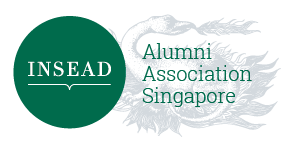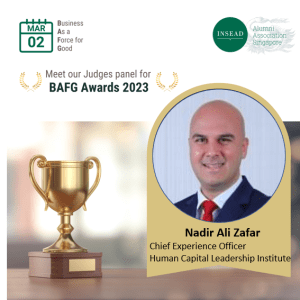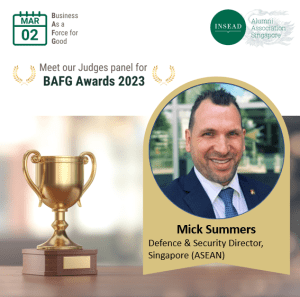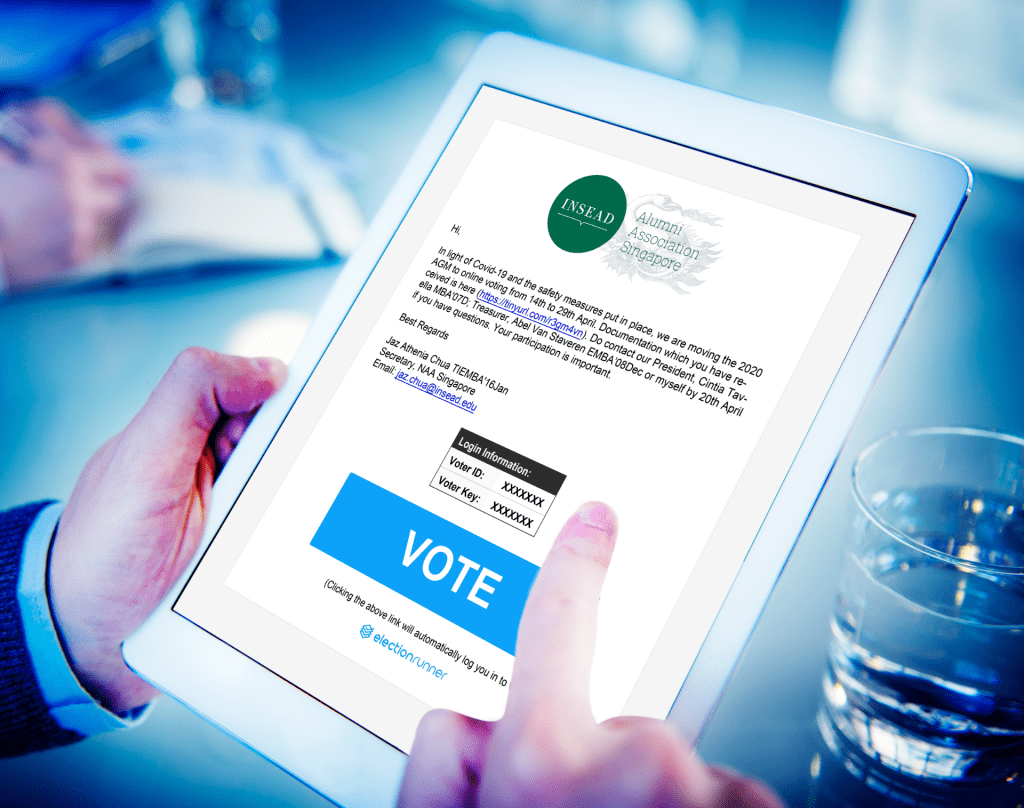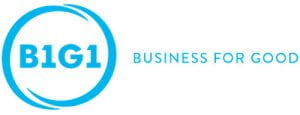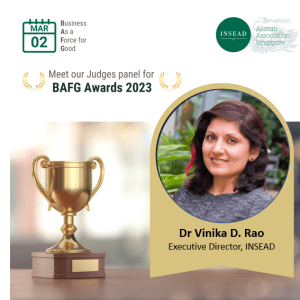Hearing from Han Wee Tan – Partner at Ernst & Young, EMBA’16D

What do you believe are the critical elements for a business to act as a force for good?
For a business to be a force for good, I think there some crucial elements.
• First, the business needs to embed doing good as part of into its strategic vision, purpose and ethos. Doing good forms needs to be a core part of the management agenda, as opposed to being a “nice-to-have” topic.
• Second, a business needs to translate that vision for doing good into sustainable practice. This involves committing time and resources to executing relevant programs over the long-term.
• Third, through active engagement, a business should be a beacon or ambassador for its unique flavor of doing good, ideally marshalling other organizations to participate in the same mission for the good of employees, customers, and communities.
What are some specific actions employees should do to enable a positive social impact on our community?
It is often difficult to generate sustainable social impact given our day jobs. That being said, employees can dedicate their time to doing good via specific channels.
For example, I’ve seen client organizations where a fixed number of hours are set aside regularly for employees to volunteer and support local organizations or charities which align with their causes or values.
Advocacy is an equally important channel. For example, I’ve seen employees who encourage their employers to adopt sustainable practices, or create social impact through diversity, equality and inclusiveness (DEI) initiatives.
What key BAFG principles would you like businesses in Singapore to embrace?
There are a number of important principles to bear in mind.
The first principle goes to the heart of how businesses interact with society. Whilst technological innovation and globalization has been a force for good, it has also left many people behind. Rising economic inequality has caused a decline in public trust in institutions and businesses. It is now increasingly important that businesses focus on long-term value creation for all stakeholders, not just shareholders.
Second, with the definition of value pivoting from traditional, tangible assets to areas like culture, trust and governance, traditional financial reporting metrics are no longer sufficient. In fact, they may pose an impediment to companies’ ability to adapt, forcing institutions to adhere their ingrained mindsets centered on short-term, financial profits.
What were the main reasons for accepting an invitation to be an IAA Singapore BAFG judge?
I am looking for a more active way to contribute to INSEAD post-graduation. The Business as a Force for Good Award is a good avenue for me to contribute, since it allows me to tap into the diversity of client experiences and social impact initiatives I’ve seen in my consulting work.
I also hope that my stepping forward encourages others to do the same, so that our community as a whole will benefit from an increased recognition that businesses should drive purpose and not just profits.
What motivated you to be an advocate for businesses to act as a force for good?
I have always been motivated to help the underprivileged in society. In our daily lives, many of us interact only with those living in mainstream society, but what about those on the fringe? It is these people who need the most help, whether they live in poverty, have unmet needs or lack access to basic necessities.
I believe businesses can do so much to help this segment, and often it is not mutually exclusive to their fundamental purpose of generating profits. It is my hope that all businesses step up and aspire to do good beyond profits, improve their social license to operate and help uplift humanity as a whole.
Meeting our 2023 Judges – Interview series
Post #1 – Diana Gan – Founder of Elementary Capital
Post #2- Kaushik Burman – General Manager & Managing Director at Gogoro India Pvt Ltd)
Post #3 – Dr Vinika D. Rao – Executive Director, INSEAD Emerging Markets, Gender & Africa Initiatives; Asia Director, HGIBS
Post #4 – Mike Summers – Defence & Security Director, Singapore (ASEAN); Australia Trade and Investment Commission; Australian High Commission, Singapore
Post #5 – Nadir Zafar – Chief Experience Officer, Human Capital Leadership Institute
Post #6 – Tan Han Wee – Partner at Ernst & Young
Catch-up with 2022 Winners – Interview series
Post #1 – Michelle Woo, VP Venture Build, ENGIE Factory Asia Pacific (Corporate Winner)
Catch-up with 2022 Judges – Interview series
Post #1 – Li Lian Liew GEMBA’13 – Director, Corporate Planning at Tan Tock Seng Hospital & Central Health
Post #2 – Apo Ozkececi MCCC’19Dec-S – SVP Commercial & Regional Head, Asia Pacific, Accelya
